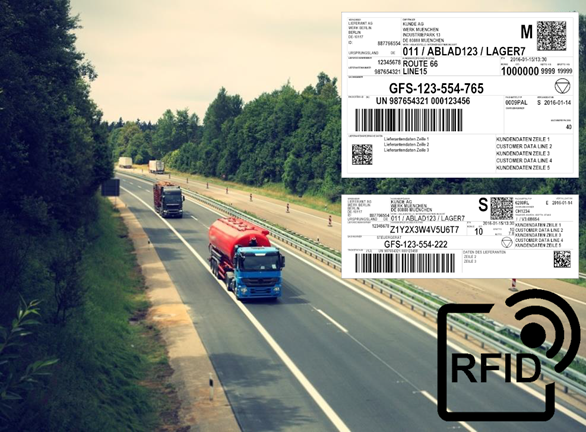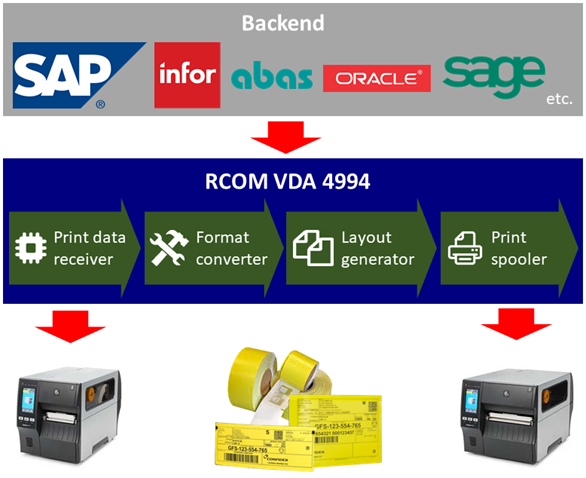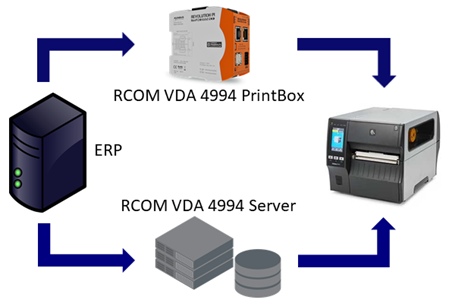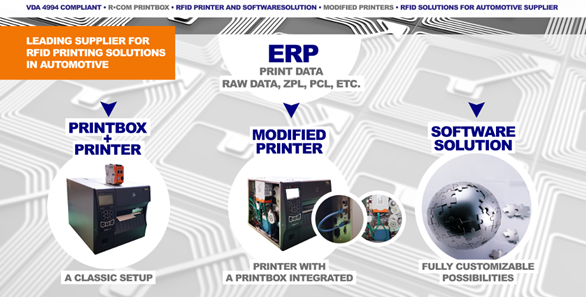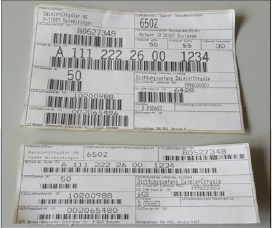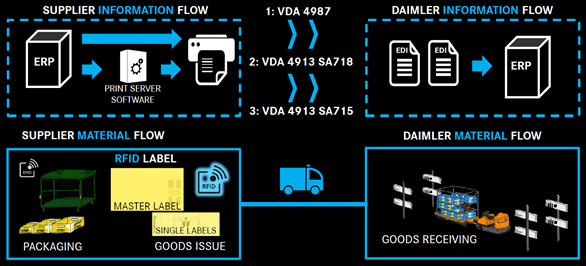The use of RFID in the supply chain
It is hard to imagine the logistics chains of suppliers, logistics service providers and manufacturers without the barcode. In the European market in particular, VDA and Odette established data standards with goods labels and EDI messages for electronic delivery notifications more than 30 years ago, without which an efficient process seems almost inconceivable today. RFID is expanding on this success by adding a new component, namely the automatic recording of packages. The new data standards in this regard were set out in recommendation 4994 of the VDA and require participating companies in the RFID sector to adapt their printing processes. In the long term, the goal is permanent labelling of reusable containers; in the short and medium terms, single-use labels are being used for this purpose. A Stuttgart-based manufacturer of premium vehicles in particular is driving forward the use of RFID. And thanks to RCOM VDA 4994, there is a complete solution that enables the necessary RFID labels to be generated without altering the processes or programming in the ERP.
Process sequence
When reusable containers equipped with RFID are used, the allocation of the package contents during packing is essential and must be communicated to the OEM via EDI using the VDA 4987 message format. In most cases however, single-use labels are created which have to be printed and attached for transport. These RFID labels have until now been attached as goods labels and small load carrier labels, but are now read out automatically by the OEM at incoming goods and in the racks during assembly.
System architecture
RCOM VDA 4994 runs as a service and waits for printing data from the ERP system which it converts and forwards to the corresponding RFID printer. The RFID print commands are created automatically so you do not have to deal with the RFID encoding, changes to the coding or new OEM specifications. This eliminates the need for programming adjustments in your ERP system and saves costs.
As a special feature, the software contains various import methods and format converters so that it can be integrated into your ERP system, and not vice versa. For more complex logic processes, there is even an integrated script language which means that RCOM VDA 4994 also functions as an OMS (Output Management System). ZPL data streams, i.e. output for label printers, can be interpreted directly and automatically augmented with RFID data. RCOM VDA 4994 thus acts as a converter in the existing communication between the ERP and printing systems, taking on all RFID-relevant tasks.
Variable solution scenarios
You can use RCOM VDA 4994 as a server or PrintBox version. The software performs in the same way. The only difference is that the PrintBox is connected directly to a printer and can only contact this printer – the server option has no such limitations. The appeal of a PrintBox which uses existing ZPL data streams is that you do not have to change anything in your IT environment with the exception of connecting the Box upstream of the printer.
Integrated Daimler temporary solution
When receiving raw data for use at Daimler, the VDA 4902 goods label format used here is integrated into the software ready for immediate use. The transition coding with supplier number instead of DUNS number in the RFID chip is also supported natively by the software.
Data import methods
The software can receive the data from the ERP system in the following ways:
- TCP data stream, i.e. the software listens to a port and receives the data there as if it were a printer
- File system, i.e. the software can read files with raw data or spool data from network drives
- LPD (Line Printer Daemon), i.e. the software acts as a printer server with LPD protocol (called the “Berkeley Protocol” in SAP)
Data import formats
The following data formats are supported natively, and additional formats can be made available upon request:
- ZPL (can also be automatically rotated 90° by the software)
- XML
- CSV
- Text-based spool formats, separated by identifiers or rows
- VDA 4913 EDI message
- VDA 4987 EDI message
- SAP DESADV IDoc


